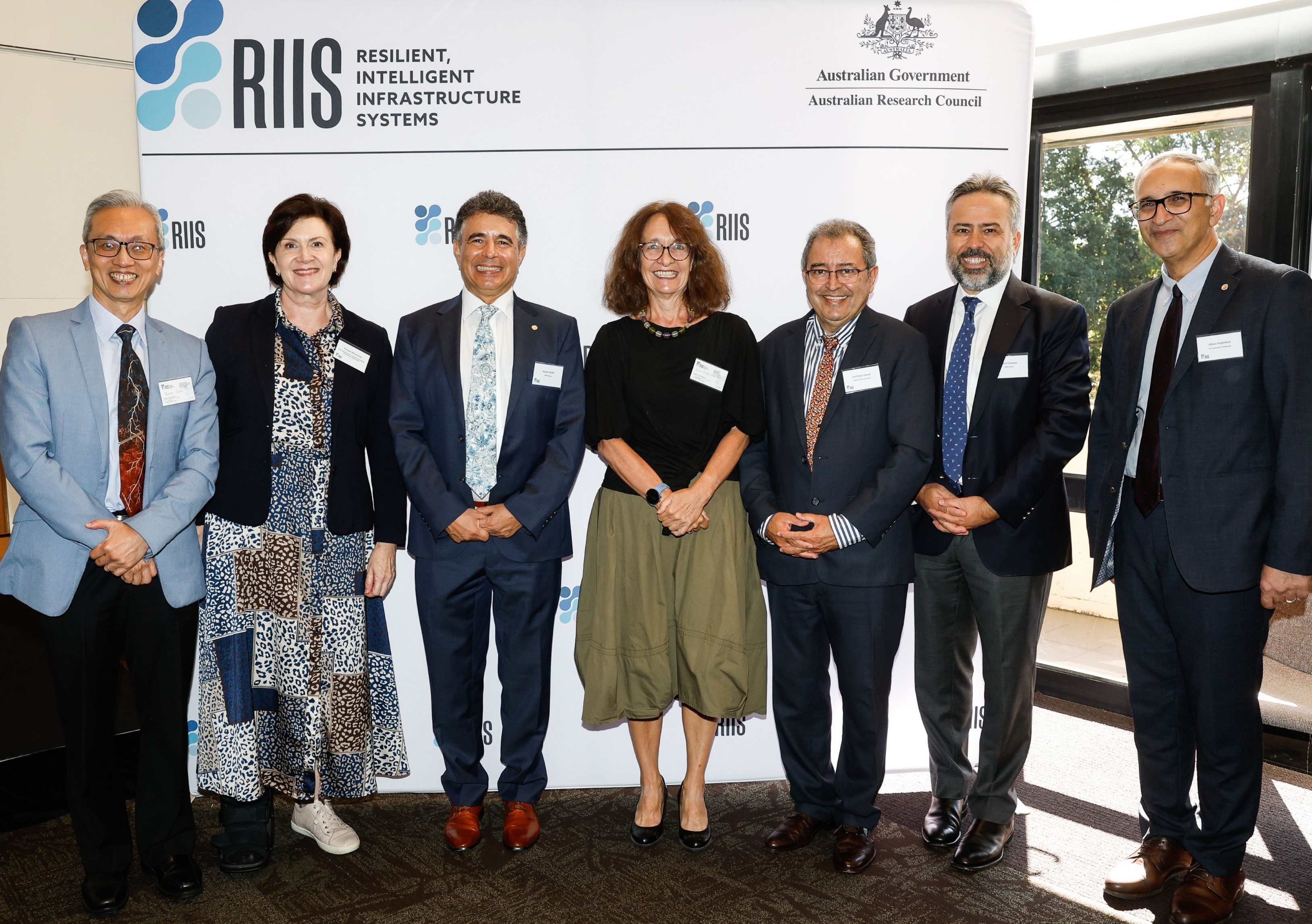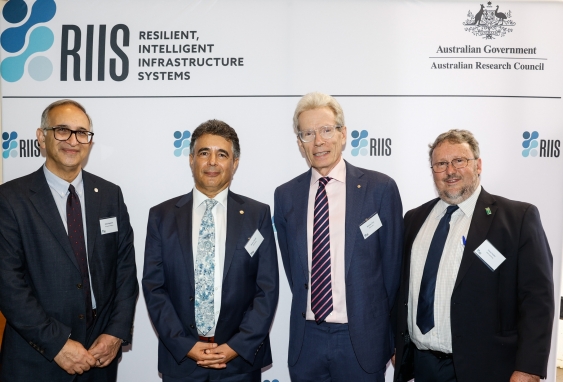ARC Research Hub for Resilient and Intelligent Infrastructure Systems opens at UNSW Sydney
The new research hub will deliver technologies to address Australia’s critical infrastructure needs.
The new research hub will deliver technologies to address Australia’s critical infrastructure needs.

A new research hub that will enhance infrastructure systems in the urban, energy and resources sectors has opened at UNSW Sydney.
The ARC Research Hub for Resilient and Intelligent Infrastructure Systems (RIIS), led by UNSW Scientia Professor Nasser Khalili, will integrate advances in sensor technology, connectivity, data analytics, machine learning, robotics, smart materials, and reliable models to address Australia’s critical infrastructure needs.
The new Hub will draw strength from engineering and science research expertise at UNSW, The University of Melbourne, Queensland University of Technology, Western Sydney University, and 13 industry partners.
The Australian Research Council (ARC) Deputy CEO Dr Richard Johnson said: “This investment enables strong and practical collaboration between top researchers and industry partners focused on deploying innovative and integrated technologies to improve urban infrastructure, transport, water, resource, and energy management.
“This will benefit Australia by finding clever ways to make our infrastructure more resilient.
“The research hub also builds Australia’s research capability, linking highly experienced researchers from across a number of universities and providing opportunities for new and emerging researchers to work with them on innovative solutions with industry partners.”
The ARC is investing $4.9 million over five years in the RIIS Research Hub, supported by $20 million in funding and in-kind support from UNSW and other university and industry partners.
UNSW Deputy Vice Chancellor, Research and Enterprise, Professor Nicholas Fisk said that the R&D ecosystem was in the midst of a paradigm shift towards collaborative and interdisciplinary team efforts, compared to older models of sole trader discipline-specific investigator research.
“The Hub really is an exemplar of this high-tech transformative approach to translate research with industry to commercial outcomes, which through its success will go on to benefit this nation and beyond,” Prof. Fisk said.

Abbas Rajabifard, Nasser Khalili, Nicholas Fisk and Steve Foster. Photo: Ken Leanfore.
It is expected that commercialisation of the technologies will create new manufacturing industries while improving the productivity and competitiveness of the infrastructure sector and the relevant manufacturing industry. In the mining, oil and gas industries alone, this has the potential to create more than 80,000 jobs by 2030.
The RIIS Research Hub will contribute to sustainable infrastructure systems that are planned, designed, constructed, operated and decommissioned in a manner that ensures economic and financial, social and environmental (including climate resilience) sustainability over the entire infrastructure lifecycle.
Prof. Khalili said: “Our aspiration is to make a step change in the way infrastructure is designed, constructed, monitored, managed, and maintained.
“As we all know, significant advances have been made in digital technologies in recent years, to the extent that they now touch every facet of our lives.
“They have the potential to revolutionise infrastructure and engineering in ways that we could not have imagined even a few years ago,” Prof. Khalili said.
While the Hub was begun during COVID lockdown periods in July 2022, it is now being launched as significant progress is being made on its research and development program, with 16 work packages already developed in the Hub.